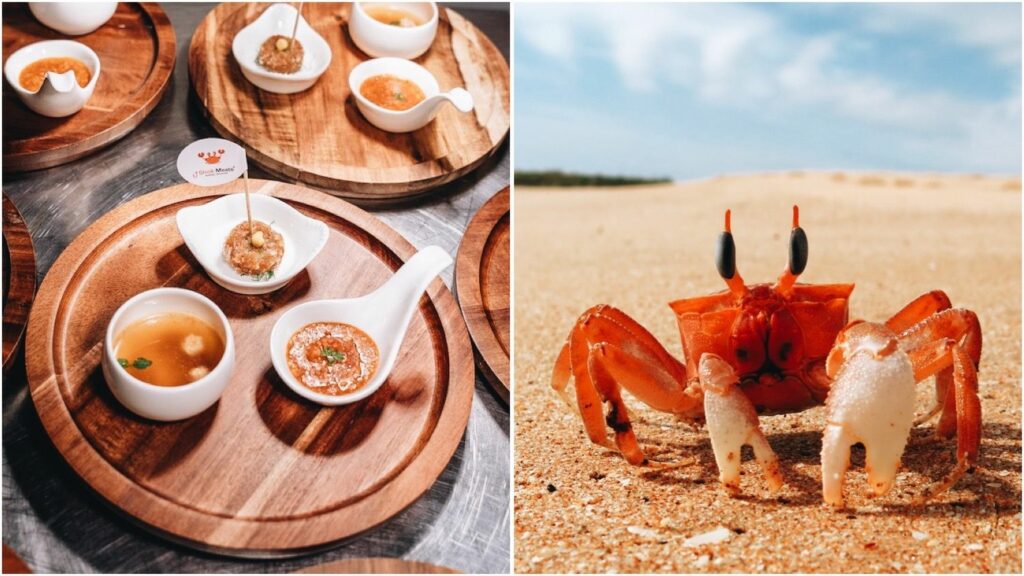Cultured crab meat may be on dinner tables sooner than you think.
In a world-first, Singapore startup Shiok Meats recently held a private tasting event for its cell-based crab meat.
Shiok Meats worked with Chef José Luis Del Amo of TheTasteLab—a program that offers culinary workshops, demos, and other courses—to showcase the cultured crab meat. The tasting was held at Singapore restaurant Kebaya and also featured Shiok Meat’s other cell-based crustacean meat: lobster and shrimp.
“I think one of the most startling things is that about ten minutes after I tried it, the umami flavor was still lingering in my mouth,” said Chef Marcus Edwin Wu of The Rubato Group.
Crab cake—which featured OmniMeat, OmniFoods’ proprietary blend of pea and soy protein, shiitake mushroom and rice—served with a citrus mayo sauce and chili crab with steamed buns topped the tasting menu. Lobster potato chips and tom yum soup were also available to taste.
Cultured crab meat
Stem cell scientists Sandhya Sriram and Ka Yi Ling are the masterminds behind the cultured seafood. They founded Shiok Meats back in 2018 in an effort to disrupt the ever-growing seafood market.
According to a report released earlier this year, the global seafood market is projected to grow from $113.2 billion as of 2020 to $138.7 billion in 2027. Seafood is incredibly popular in Asian countries, especially in China, which consumed 36 percent of the world’s catch in 2017, according to the Food and Agriculture Organization of the United Nations.
“We wanted to target the Asia-Pacific market where 65 percent of the world lives. So given that this part of the world requires a lot more access to nutritious and sustainable food in the long run, we decided to look into what sort of a protein we consume mostly,” Sriram explained. “And among all of the proteins, it was seafood and chicken that was most consumed in Asia. And seafood was number one.”
Shiok Meats uses cellular agriculture technology to create sustainable seafood from crustacean stem cells. “We give a conducive control sterile environment for these cells to grow, where we control the temperature, the pH, the mixing, the liquid nutrients that we feed the cells. And these cells assume that they are still inside of the animal’s body,” Sriram explained.
“They get triggered and start forming the muscle fibers, the fat fibers, the connective tissue,” she continued. “And a collection of all of this is basically the meat that we eat right now, which is from a conventional animal, per se.”
Cell-based seafood is a more sustainable option compared to conventional seafood because it reduces the environmental impacts of the commercial fishing industry, which includes water pollution and habitat degradation.
Shiok Meats joins a growing list of companies creating cultured seafood, including Wild Type, BlueNalu, and Finless Foods. The company aims to have its cell-based crustacean meat available to consumers by 2023.


